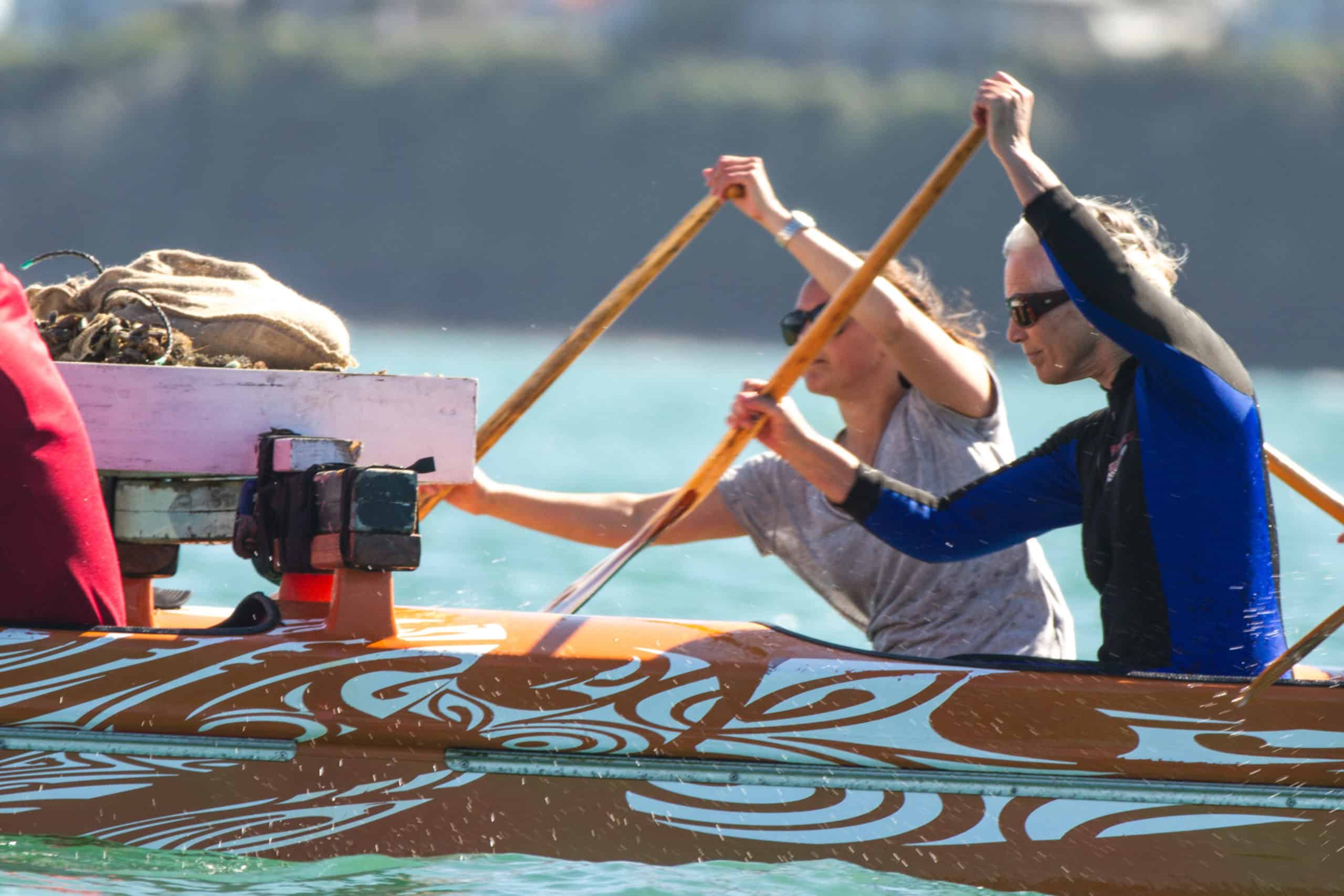
This morning, five waka ama from Orakei Water Sports pushed their way through the waters of Ōkahu Bay carrying approx 40,000 kūtai / mussels (2 tonnes) to re-seed historic shellfish beds. The kūtai, transported from Waiheke by Ngāti Pāoa, were blessed by kaumātua and, at the sound of the pūtātara / conch, dropped into the waters of the bay.
In a project spearheaded by restoration ecologist Richelle Kahui-McConnell and involving Ngātu Whātua Ōrākei whānau alongside marine science and mātauranga Māori specialists from the University of Auckland, this pilot project aims to restore the health and mauri / life force of the bay through the filtering effects of kūtai.
As efficient filter feeders, kūtai are ‘kidneys of the sea’, powerful pumps and filters capable of removing suspended sediments, heavy metals and even harmful bacteria. A single kūtai is capable of filtering up to 300 litres of seawater per day – that’s about a bathtub full.
For this project, Auckland University’s Senior Lecturer in Marine Science, Brendon Dunphy and Senior Lecturer in Māori Studies, Dan Hikuroa are providing guidance on the science and the integration of matauranga Māori. “Our skill sets and expertise overlapped with Ngāti Whātua Ōrākei’s dreams and aspirations, so working together makes perfect sense,” explains Hikuroa. Dunphy’s interest is bioremediation; looking at how kūtai might be used to actively remove pollutants. The bay is considered paru / dirty and has a sad history of degradation. It was once the main sewer outfall for the city, and the dumping of human waste into the Waitematā put an abrupt end to shellfish gathering practises.
In 2012 Kahui-McConnell authored an ecological restoration plan for Ngāti Whātua Ōrākei. Work began planting out Takitimu stream to reduce sedimentation flowing into the bay. It was all about “rears in the air and hands in the sand”, remembers Moana Tamaariki-Pohe, who’s father Tamaiti worked closely with Kahui-McConnell, and who, with her sister Donna, founded the waka ama club (Ōrakei Water Sports). “We wanted a bay that smells different, tastes different, looks different, feels different. As a kid, I remember picking pipi and seeing flounder in the bay. We used to fish for snapper and mullet from the wharf by catching sprat. It’s so different now.”
2019 update:
Monitoring has indicated that these early small beds did not manage to survive, most likely due to the soft sediment conditions of the seafloor. However, several crops of kūtai have been discovered in the bay on hard surface-structures, including inlet pipes to Kelly Tarlton’s aquarium. This indicates the presence of mussel larvae (spat) in Ōkahu Bay.
